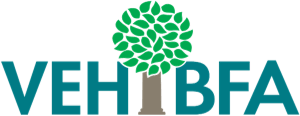Tax-Exempt 501(c)3 Bonds 101
Tax-Exempt 501(c)3 Bonds 201
Best Practices Optimize Debt Management
Financial Considerations for Hiring Municipal Advisors
Click on the links below to review FAQ’s, Websites of Interest and Conference Materials.
Frequently Asked Questions
Websites of Interest
Past VEHBFA Conference Materials
Frequently Asked Questions
What is the Agency’s role in a financing?
Who is eligible to borrow through the Agency?
- Libraries
- Any nonprofit library that servers the public
- Educational Institutions
- Any private or independent nonprofit university, college, primary or secondary school in the state
- The University of Vermont and Vermont State Colleges
- Healthcare Facilities
- Any nonprofit hospital as defined in section VSA, Title 18, S1902.
- Any nonprofit institution whose purpose is devoted primarily to the operation of diagnostic and therapeutic facilities for medical, surgical or psychiatric care of ambulatory patients
- Any nonprofit
- Licensed nursing home
- Assisted living facility
- Continuing care retirement facility
- Residential care facility or similar nonprofit facility for the continuing care of the elderly or infirm, provided that such facility is owned or under common ownership with an otherwise eligible institution
Note: Healthcare facilities and equipment to be financed may need a CON (Certificate of Need) issued by the Green Mountain Care Board and/or COA (Certificate of Approval) issued by the Agency of Human Services.
Which financing alternative is best?
How are interest rates determined?
What is the cost of issuance involved in a transaction?
Are State tax dollars used to fund VEHBFA?
Does VEHBFA become involved with the construction of the facility being financed?
Websites of Interest
- Glossary of Bond Terms
- National Association of Health and Educational Facilities Financing Authorities
- National Association of Bond Lawyers Tax Compliance Checklist
- State of Vermont
- Green Mountain Care Board
- Agency of Human Services
- Municipal Securities Rulemaking Board Advisory Notice 2013-18
Suggested practices in submitting financial disclosures to the Electronic Municipal Market Access (EMMA) - Internal Revenue Service – Tax Information for Conduit Borrowers
- Publication 3755 – Filing Requirements
TEB’s first publication outlines the filing requirements for issuers of tax-exempt bonds, including Forms 8038, 8038-G and 8038-T - Publication 4079 – Tax-Exempt Governmental Bonds Compliance Guide
This publication provides an overview for state and local governments of the key rules under the federal tax law that generally apply to municipal financing arrangements commonly known as governmental bonds - Publication 4078 – Tax Exempt Private Activity Bonds Compliance Guide
This publication provides an overview for state and local government issuers and borrowers of bond proceeds of the general post-issuance rules under federal tax law that apply to municipal financing arrangements known as qualified private activity bonds, - Publication 4077 – Tax Exempt Bonds for 501(c)(3) Charitable Organizations
This publication provides an overview for state and local government issuers and 501(c)(3) tax exempt charitable organizations of the general post-issuance rules under the federal tax law that generally apply to municipal and financing arrangements commonly known as 501(c)(3) bonds, - Voluntary Closing Agreement Program
IRS Program (VCAP) to assist tax-exempt bond issuers in resolving violations of the federal tax laws applicable to their tax-exempt bonds. Under VCAP, issuers can conclusively resolve violations through the execution of closing agreements with the Service,
- Publication 3755 – Filing Requirements
Past VEHBFA Conference Materials
Presentations delivered at VEHBFA’s 2015 borrower’s conference:
- Economic Overview – The US and Higher Education/Health Care Sectors
(Zach Solomon, Barbara Scudder-Pritchard & T.J. Sheehy – Morgan Stanley); - Municipal Market Update
- Financing Alternatives and Refunding Opportunities
- SP Direct Purchase Commentary July 2014
- Moody’s Growth of Bank Loans and Private Placements
(Robert Guadagno – Public Financial Management, Inc.); - TEB Regulatory Initiatives and Post Issuance Compliance Requirements
(Justin Pica Municipal Securities Rulemaking Board); - VEHBFA Overview
(Robert Giroux – VEHBFA); - Rule 15c2-12 and related securities law
(Matt Hughey – Sidley Austin)
Presentations delivered at VEHBFA’s 2012 borrower’s conference:
- 501(c)(3) Financing Alternatives and Current Refunding Opportunities
(Robert Guadagno, Public Financial Management); - Working with a Financial Advisor and Banker/Underwriter
(June Matte, Public Financial Management); - Post-Issuance Compliance
(Lawrence Bauer & Matthew Hughey, Sidley Austin)
Presentations delivered at the National Association of Health and Educational Facilities Finance Authorities conferences can be found here.
